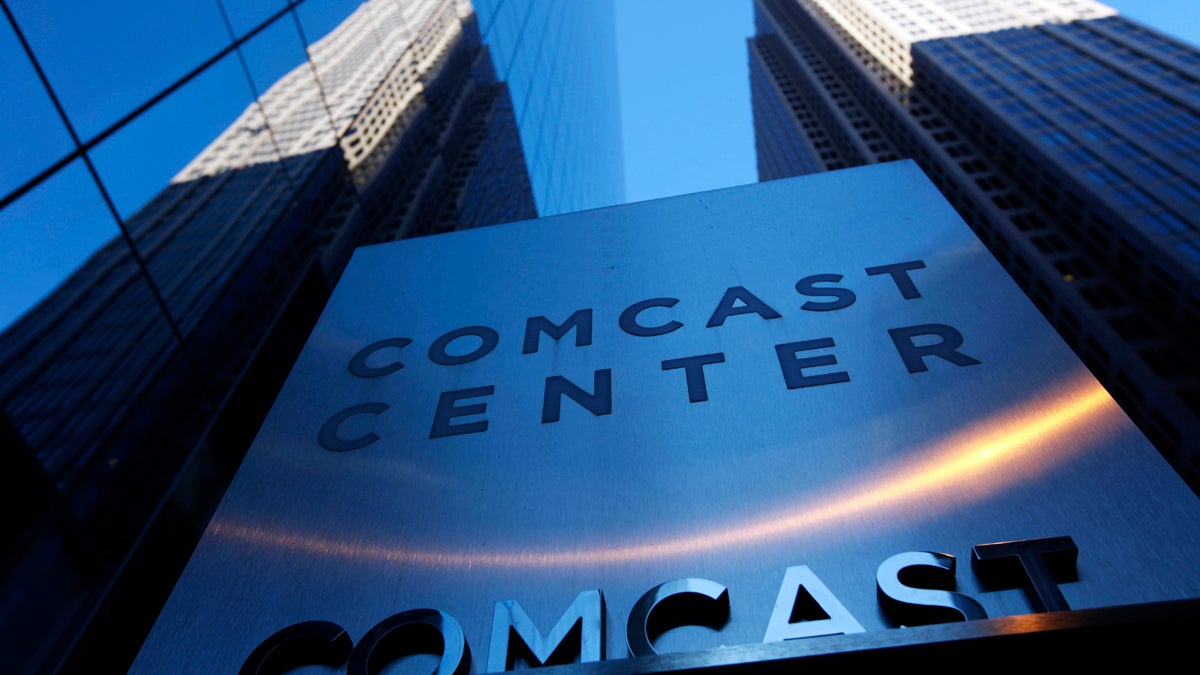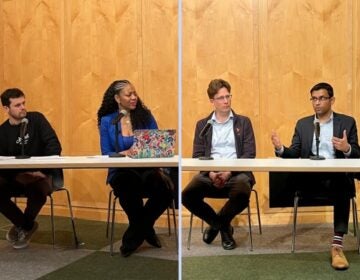$1.5B in efficiencies: What Comcast-TWC merger might mean for Philly
Listen
In this Dec. 3, 2009, photo, a sign outside the Comcast Center, left, is shown in Philadelphia. (Matt Rourke/AP Photo, file)
Comcast announced Thursday its plans to acquire Time Warner Cable. The massive deal would combine the nation’s top two cable companies — and is likely to have local implications.
At around 1:30 a.m. Thursday, as the snows along the East Coast were really starting to fall, executives from Comcast and Time Warner Cable inked a $45.2 billion agreement to combine forces.
“The last week was a real flurry,” said Comcast CEO Brian Roberts on a media conference call Thursday, outlining how the deal was done. “And that’s not a pun, looking out the window.”
The merger will make Philadelphia’s Comcast, which also owns NBCUniversal, an even bigger force in delivering cable and broadband services to tens of millions of U.S. homes.
Roberts said the deal will also generate about $1.5 billion in operating efficiencies. He wouldn’t elaborate on whether that meant job cuts — except for saying this: “It does put a lot of people’s lives and careers [in flux] and there’s uncertainty. And that’s just one of the reasons we always hope the review is as expeditious as possible.”
That regulatory review is expected to take nine to 12 months.
“Any time that Comcast and Time Warner Cable talk about synergistic efficiencies, what they’re talking about is laying off staff,” said Susan Crawford, a visiting professor at Harvard who focuses on telecommunications policy.
Crawford is the author of a recent book critical of Comcast’s monopolistic tendencies. She sat in on the Comcast-Time Warner Cable investor calls Thursday morning and remains skeptical that the savings realized from the deal will be passed on to consumers.
“And it also means that their power to exclude any potential infrastructure competition has just potentially gotten greater,” Crawford said.
The deal needs approval from both the Department of Justice’s antitrust unit and the Federal Communications Commission.
Paul Gallant, an equities analyst in Washington, D.C., said he’s been fielding a lot of calls from Wall Street on whether the merger will go through.
He thinks it will.
“This isn’t like Sprint and T-Mobile merging, where consumers lose an option,” Gallant said. “So the merger, while it’s definitely scary at the headline level, I think is a lot different than the other kinds of mergers that Washington often gets presented with.”
Consumer groups are already fighting the possibility.
WHYY is your source for fact-based, in-depth journalism and information. As a nonprofit organization, we rely on financial support from readers like you. Please give today.



